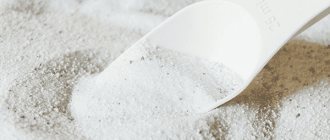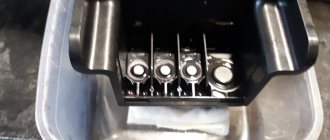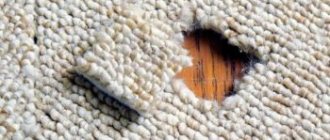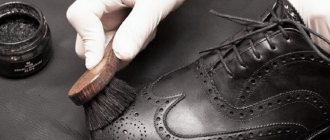Mysterious spelling homonyms are found in the Russian language all the time. They mislead us, which is why we often make spelling and even stylistic errors when writing them. Therefore, you need to be careful at such moments, and if you doubt the correct spelling of words, it is better to consult a dictionary. Today we’ll figure out the spelling of the words “buttery” and “oily”, how to spell it correctly and why.
Use of the word oily
So, what does oily mean, and how is this word spelled? It’s easy to remember: oil means:
- consists of oil, contains oil: oil cream, oil paints;
- runs on oil: oil filter, oil cooler, oil lamp.
Example sentences
- The butter roses on the cake looked like they were alive and smelled delicious.
- By September it got colder, so I had to buy an oil heater.
- The walls, painted not with oil paint, but with lime, smelled strongly.
- The car urgently needed repairs: the oil filter was clogged, and soot hung in flakes on the spark plugs.
- An oil pump is needed to create pressure in the lubrication system.
- Shadows danced comfortably on the walls from the warm light of the oil lamp.
- The butter sponge cake recipe was written on a piece of wallpaper.
- The oil stain was ingrained into the upholstery and could not be removed by any means.
One or two H's in the word oily? It’s even easier to remember here: the adjective oily is formed from the root “oil-o” using the suffix “-yang”. And in Russian, all adjectives with the suffix “-an/-yan” are written with only one N. The exception is three words: glass, tin, wood. Any other adjectives - with one H:
- leather,
- planed;
- linen;
- ruddy, etc.
Denominate adjective in text
The word “oil” is often found in various texts in Russian. This trend is observed both in fiction and in information literature, for example, in articles. If you deal with them often, then there will be no difficulties with how to write “oily” correctly. Example sentences containing the word “oily”:
- In the massage parlor you can order an oil film wrap.
- Why is the oil filter almost entirely made of paper?
- An oil stain on a T-shirt cannot be removed even with very expensive powder.
- It is important to schedule the oil engine to compare performance.
- There is nothing difficult about putting the correct emphasis on the phrase “oil pump”
- The artist painted the figure of a girl on canvas with oil paints.
- I glanced at the oil bottle that was sitting on the kitchen table.
- I tried to highlight the word “buttery” as a participle, but I realized that this was a profound mistake.
- You need to properly oil the oil cooler, otherwise it will stop working.
- The oil thermostat contained homemade butter and buttery cheese.
- Don’t try to butter me up with your speeches - I won’t fall for that.
- Repeating the word “oil” in a sentence is unacceptable, so it is recommended to use synonyms.
- In a fragment of the work it was said that the oil solution was spilled on the sofa in the living room.
- If you apply oil cream to your face every week, over time, wrinkles will become less noticeable.
- The oil-painted canvas left several questions about its origin.
If you read several such sentences every day, then over time spelling the phrase will not cause any problems. But to speed up the learning process, it is also recommended to analyze each example, trying to explain why the letter “i” is written in the suffix in a particular word and not “e”. The same applies to sentences in which the second paronym is used.
Use of the word oily
The verbal adjective oil is formed from the imperfective verb “oil” with the suffix “-en” and is written with one letter N, like all verbal adjectives without a prefix and a dependent word:
- oil - oily, oily, oily;
- saw - sawn, sawn, sawn;
- paint – painted, painted, painted;
- bleach – bleached, bleached, bleached;
- smoke - smoked, smoked, smoked.
The suffix - “-yan” or “-en” is determined by the meaning of the word. oily – means “coated with oil”, “soaked in oil”, “stained in oil”: oily fingers, oily pancake.
Oily can also be used in a figurative meaning: flattering, obsequious, lustful: oily look, oily speech.
Sometimes the week preceding the Maslenitsa holiday is called Maslenitsa Week.
Example sentences
- The pancake was hot, and Petka dropped it with the oily side into the frying pan.
- From the warmth and hearty food, Ivan softened, and his gaze became sleepy and oily.
- - Where?! – the mother shouted menacingly, seeing that Zhenya was reaching into the sugar bowl with his oily fingers.
- His oily eyes darted from one young woman to another, and his fingers nervously fiddled with his collar.
- During Shrovetide week you are supposed to go to your mother-in-law for pancakes.
- The rye flatbread with a buttery crust smelled intoxicating, and my stomach began to gurgle.
- The millet porridge was not a success this time: it turned out to be too oily and salty.
In what cases is the word “buttery” used?
Using the suffix “-nn-” from the verb “oil” you can form the adjective “oiled”, which acts as a passive participle. This form of a verbal adjective is used with a dependent word - oiled by someone or something. For example, oiled by an experienced hand, oiled by a father, oiled by a sponge, etc.
oiled
It is worth noting that when forming adjectives from perfective verbs, they acquire the corresponding prefix and suffix “-nn-”. For example, oil - oiled, oil - oiled, oil - oiled, etc. In this case, there may not be a dependent word.
Example sentences
- The bread, evenly buttered by mom, was eaten first.
- The mechanism, carefully oiled by the master, worked without failure.
- The formed buns should be placed in a pre-greased baking pan.
- The oiled canvas with a roller was no longer useful to the artist.
- The pancake buttered by dad turned out to be too fatty.
- Soon I had to throw away the oily robe and buy a new one.
Use of the word oily
Oiled with two НН in the suffix is written if it is a passive participle. In this case, there is always a dependent word: oiled with a brush, oiled with a mother, etc.
In addition, if the adjective oiled is formed from the imperfect verb “oil” (what to do?), then we write one N. But if the verb of the perfect form is “oil, oil, oil” (what to do?), then the verbal adjective not only receives a prefix, but also two Hs in the suffix: oiled, oiled, oiled.
Example sentences
- The pancakes buttered by my mother turned out to be much tastier.
- Plain paper, oiled with a brush, easily turns into baking paper.
- Paint stains can be easily wiped off with an oily rag.
- Pour the dough into a frying pan, oiled with butter.
- The mirror was covered in marks from oily fingers.
Examples of using OP
The word “masleny” is found much less frequently in Russian than “maslyaniy”, but this does not mean that sentences using it should not be considered. If a person sees the difference in the lexical meaning, then he will never make a mistake in spelling the suffix, and will also be able to find other paronyms in the text without any problems. Here are a few such suggestions:
- I stained the clean tablecloth with my oily hands, which greatly offended my mother.
- The oily rag lay on the table, as if it belonged there.
- An oiled frying pan is perfect for frying fish.
- My uncle’s buttery speeches could appease anyone, but not my mother, who knew him since childhood.
- To get a buttery voice, you will have to practice eloquence for a long time.
- The thoroughly oiled napkin was used only to remove the remaining grease from the stove.
- Have you tried buttering your already buttery toast to make it even tastier?
- There was something in the buttery speeches of the stranger that attracted me with great force.
- To properly clean an oiled plate, you will need a lot of detergent.
- In her oily eyes one could see a bottomless sea, which beckoned me.
- If you always listen to the oily statements of politicians, you can believe in many fables.
Having studied these examples, it becomes clear that in some cases the word is used with a double “n” in the suffix. This happens when the adjective appears together with dependent words. According to the rules of the Russian language, in this case the OP should always be written with a double “n”. In all other cases, the design will not cause problems even for a novice writer. It is important to be able to distinguish the lexical meaning in different cases, and also to remember that the suffix -en refers to verbs, and -yan to nouns.
Paronyms are one of the most interesting, but at the same time quite difficult topics in the Russian language, since it requires memorizing a large number of lexical meanings, which are usually easy to confuse. However, if you remember that words are formed from different parts of speech, then significant difficulties in spelling should not arise. It is enough just to think for a few minutes about whether the adjective is denominal or verbal, and only then draw any conclusions. It may seem difficult at first, but if you deal with paronyms often, you will master the topic in a matter of days.
Bottom line
To determine which spelling option – “buttery”, “oily” or “buttery” to choose, you must first read the entire application and understand the context. Next, determine whether the adjective is formed from a noun (then the suffix “-yan-” should be used) or from a verb (“-n-“, “-nn-”).
In the case of denominative adjectives, 2 letters “n” in the suffix are written only for exception words, of which “butter” is not included.
Verbal adjectives, in turn, are divided into those formed from an imperfective verb (-n-) and a perfective verb (-nn-). An adjective is also formed using “-nn-” if it is used with a dependent word and acts as a passive participle.
"Oily" (adjective)
The meaning of the word “oily” according to S. I. Ozhegov’s dictionary
- See oil
Morphological analysis of the adjective
- I Part of speech: adjective ;
- IIInitial form: oil - singular, masculine, nominative case;
- IIIMorphological characteristics:
- A. Constant signs:
- Rank by value: qualitative
- masculine, plural, long form, positive degree
definition
nominal part of the predicate
Declension of an adjective by case
| Case | Masculine | Neuter gender | Feminine | Plural |
| Nominative | Which one? Oil | Which one? Oil | Which one? Oil | Which ones? Oil |
| Genitive | What kind? Oil | What kind? Oil | Which one? Oil | Which ones? Oil |
| Dative | Which one? Oil | Which one? Oil | Which one? Oil | Which one? Oil |
| Accusative | Which one? Which one? Oily, oily | Which one? Which one? Oil | Which one? Oil | Which ones? Which ones? oil, oil |
| Instrumental case | Which one? Oil | Which one? Oil | Which one? oily, oily | Which ones? oil |
| Prepositional | Which one? Oily | Which one? Oily | About what? oily | Which ones? Oil |
Short form
| Masculine | Neuter gender | Feminine | Plural |
| What?Maslyan | What's it like? buttery | What? Maslyana | What are they? |
Degrees of comparison
| Positive degree | comparative | Superlative |
| oil | oilier, oilier, oilier, oilier |











